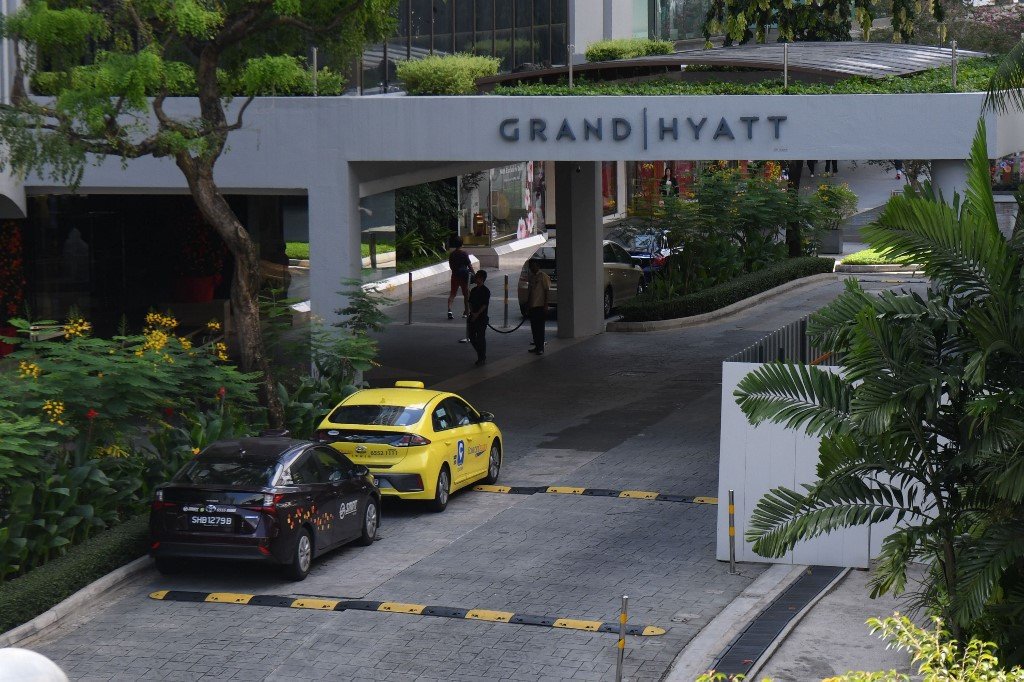Popular Reads
Top Results
Can't find what you're looking for?
View all search resultsPopular Reads
Top Results
Can't find what you're looking for?
View all search resultsHotel occupancy rates fall to as low as 20 percent as coronavirus fears take hold
Indonesian Hotels and Restaurant Association (PHRI) secretary-general Maulana Yusran explained that the country's overall occupancy rate had fallen below the regular low season average of 50 to 60 percent to 30 to 40 percent since the outbreak of the coronavirus in China in early January.
Change text size
Gift Premium Articles
to Anyone
T
he COVID-19 coronavirus has hit the hotel industry hard with occupancy rates well down on the seasonal average across Indonesia, an industry group has said.
Indonesian Hotels and Restaurant Association (PHRI) secretary-general Maulana Yusran explained that the country's overall occupancy rate had fallen below the regular low season average of 50 to 60 percent to 30 to 40 percent since the outbreak of the coronavirus in China in early January.
Occupancy rates at some hotels have dropped as low as 20 percent after Indonesia confirmed its first two cases last Monday. Maulana said Bali, Jakarta, Manado in North Sulawesi and Batam and Bintan in Riau Islands were currently the worst-hit areas.
"We can [even] see it over the last two days. [Hotel occupancy] has taken a battering," he told reporters after a meeting with the Trade Ministry in Jakarta. "Occupancy rates everywhere have dropped as this is a domestic market problem."
Since news of COVID-19 broke in January, Indonesia’s travel industry has been dealt a massive blow, with mass cancellations of flight and hotel bookings.
President Joko “Jokowi” Widodo announced on Monday that two Indonesians living in Greater Jakarta had tested positive for COVID-19, prompting the government to hold off on its plan to provide incentives to attract foreign tourists.
Yet only last week, the government announced a Rp 10.3 trillion (US$742 million) incentive package to boost consumer spending and support tourism.
Read also: Indonesia announces $742m stimulus to shield economy from virus
As part of the package, the government had planned to provide Rp 298.5 billion in incentives to airlines and travel agents to boost foreign arrivals to Indonesia and another Rp 443.39 billion in discounts to domestic tourists who visited any of the country’s 10 worst-affected tourist destinations.
National flag air carrier Garuda Indonesia, along with its low-cost subsidiary Citilink Indonesia, has already started offering discounts of up to 50 percent for 25 percent of seats on every flight to 10 destinations for the next three months.
Tourism and Creative Economy Minister Wishnutama Kusubandio clarified on Thursday that authorities would continue to provide tax exemptions for hotels and restaurants as planned, despite postponing incentives to attract foreign arrivals.
Read also: Government delays incentives for foreign tourists after COVID-19 hits Indonesia
The government announced last week that it would provide support to 10 tourist destinations by not collecting hotel and restaurant taxes for six months. In return, it will grant Rp 3.3 trillion to regional authorities to compensate for losses in tax revenue.
"We are now trying to encourage domestic tourism so the hotel industry and other related sectors will not see any layoffs," Wishnutama told reporters after the Trade Ministry's meeting.
Meanwhile, Statistics Indonesia (BPS) revealed on Monday that tourist arrivals totaled 1.27 million in January, around 5.85 percent higher than the 1.20 million recorded in the same month in 2019. However, the growth rate was much lower the 9.5 percent increase in arrivals seen in January 2019.
According to BPS data, the occupancy rate of star-rated hotels stood at 49.17 percent in January, a decline of 2.3 percentage points compared with 51.47 percent in same month last year. BPS will announce February’s tourism data in early April.
Chinese tourists made up the second-highest number of foreign tourists visit to Indonesia, after Malaysians, last year.










